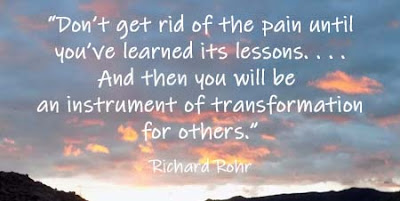Where do you put takeaways in your memoir? (If you missed last week’s post on what takeaways are, click on Your memoir’s all-important takeaways.)
“Takeaway
happens within a reflection,” point out Brooke Warner and Dr. Linda Joy Myers.
(To read more about the importance of reflection in
memoir, click on Reflection and the words we use.)
“Takeaway
can be a reflection, but not all reflection is takeaway,” they continue. “… [W]herever
there is reflection, there is an opportunity for a takeaway, but that doesn’t
mean that necessarily all reflections are going to be takeaways.”
In
other words, takeaways accompany segments in your memoir in which you reflect.
You will reflect multiple times throughout your memoir. Some if not all of them
will be opportunities for you to include a takeaway for your readers—those bits
of wisdom to live by.
And
don’t beat around the bush! Pinpoint your message. Clarity is your goal.
(Please, please, read my blog post about writers who circle all around The
Point but never state The Point. Click on What’s the point?)
Dedicate
quality time to crafting your takeaways. Specify what was the most important
message or lesson you took away from that experience (the one you’re reflecting
on). Boil it down, write a concise message for your readers.
Here
are examples of takeaways:
“Life is composed of cycles and seasons. Nothing lasts forever.” Dr. Henry Cloud
“Courage doesn't always roar. Sometimes courage is the quiet voice at the end of the day saying, 'I will try again tomorrow.'" (Mary Anne Radmacher)
“We
find by losing. We hold fast by letting go. We become something new by ceasing
to be something old.” (Frederick Buechner)
In
this example from Steve Pemberton’s A Chance in the World, I’ve underlined the
takeaway: “Looking back, this was a galvanizing moment. The Robinsons had taken
away any semblance of my childhood, something I could never get back. But now
this new edict, vile and ignorant, threatened my future. At some point in
our lives, we all have to make a decision to take a stand, knowing full well
the potential harmful consequences. For me that decision came in the fall
of 1982, at the age of fifteen.”
Most
memoirists place takeaways throughout their memoirs. If you have a conclusion,
a postscript, or an epilogue in your memoir, reiterate your most important
takeaways in them, too.
Your
takeaways are the most powerful part of your memoir.
They
offer readers hope,
or
wisdom, or courage, or laughter,
or
a solution, or a new way of living or loving.
Your
takeaways, then, communicate to readers:
“I
know this is true because I have experienced it,
I
have lived it. It changed my life.
Perhaps
it will change your life, too.”
At
first your takeaways will resemble diamonds-in-the-rough. Your job is to cut
and polish and make those gems sparkle. Doing so adds to their value for both
you and your readers.
There
you have it: Your Tuesday Tidbit.



